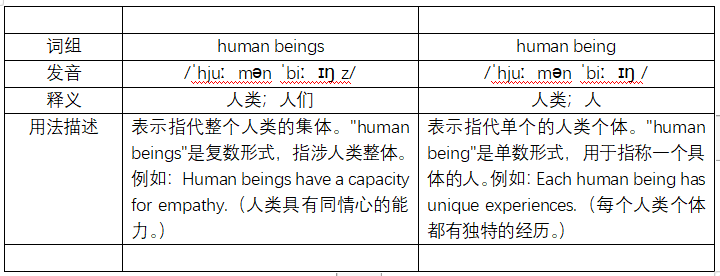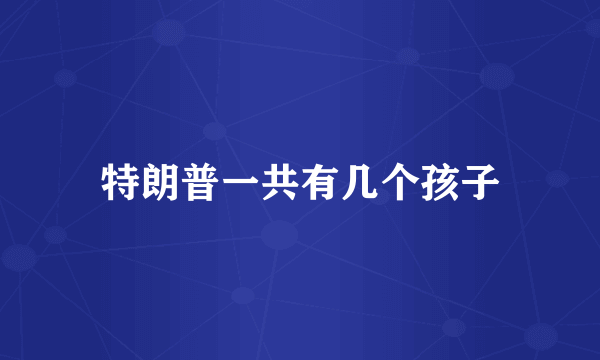human beings与human being的区别
的有关信息介绍如下:从释义,用法,使用环境,形象和影响范围五个维度分析human beings与human being的区别,详细内容如下。

1. 释义区别:
- "Human beings" 是指多个人类个体的总称,强调人类的集体或群体。
- "Human being" 是指单个人类个体,强调个体的独立性。
例句:
- Human beings have made significant advancements in technology. (人类在技术方面取得了重大进步。)
- Every human being deserves equal rights and respect. (每个人类个体都应该享有平等的权利和尊重。)
2. 用法区别:
- "Human beings" 通常以复数形式使用,用于描述全人类、人类特征和行为等。
- "Human being" 通常以单数形式使用,用于指代一个具体的人类个体。
例句:
- Human beings have a natural instinct to survive. (人类天生具有求生的本能。)
- Each human being is unique and possesses their own talents. (每个人类个体都是独特的,具有自己的才能。)
3. 使用环境区别:
- "Human beings" 的使用更常见于学术、科学、社会和哲学等领域,涉及对人类整体的讨论和研究。
- "Human being" 的使用更常见于日常交流和个体方面的描述。
例句:
- The study investigates the behavior of human beings in various social situations. (该研究调查了人类在不同社会情境下的行为。)
- As a human being, I understand how important empathy is in building strong relationships. (作为一个人类个体,我了解同理心在建立紧密关系方面的重要性。)
4. 形象区别:
- "Human beings" 更强调人类作为整体的形象,强调人类共同的属性、特征和能力。
- "Human being" 更强调个体的形象,突出个体独立性和特定的身份。
例句:
- Human beings have explored the depths of the oceans and reached the moon. (人类探索了深海和登上了月球。)
- She is a compassionate human being who always helps those in need. (她是一个富有同情心的人类个体,总是帮助那些需要帮助的人。)
5. 影响范围区别:
- "Human beings" 的影响范围更广泛,涵盖了整个人类,包括历史、文化、社会、科技等方面。
- "Human being" 的影响范围更局限于个体,包括个人行为、思维、情感等方面。
例句:
- Human beings have shaped the course of history through their actions and ideas. (人类通过行动和思想塑造了历史的进程。)
- Each human being has the capacity to make a positive difference in the world. (每个人类个体都有能力为世界带来积极的改变。)



